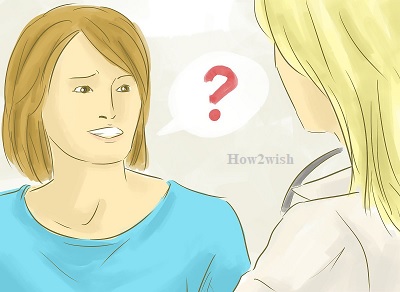I don’t know a single woman who hasn’t been addressed at least once: “Something has gotten better”, “Your skin is dull. Have you been to a beautician for a long time?”, “Do you want to get a tattoo on your forehead?”, “It’s better not to wear a mini with your legs.” In such phrases, shaming is manifested, that is, discrimination for non-compliance with some accepted standards of beauty. How to respond to such comments?

Comments About Your Body
Don’t take it personally
I really love Remarque’s saying: “Everything that you see in me is not mine, but yours. Mine is what I see in you,” and I always try to keep it in my head. I believe that happy people who are in harmony with themselves and the world will not deliberately say something to others that can upset, anger, or offend. And, if someone allowed himself an attack on your appearance, it can mean anything: from bad manners to attempts to assert themselves by humiliating others. Most importantly, it has nothing to do with you personally. People simply cannot allow others what they do not allow themselves, such as getting a tattoo, dyeing their hair pink, or genuinely loving their body if it differs from the standards of advertising in glossy magazines.
Express feelings
Listen to what you feel and don’t be afraid to talk about it. Sometimes other people think that their opinion about your body will be useful to you or inspire you to do something, but it is not up to them to decide. Say as calmly as possible that this tone or subject of conversation is unpleasant for you, you do not want to continue the conversation in this vein or return to it in the future.
Set boundaries
If you don’t set boundaries, people may continue to comment on your appearance, eating habits, or clothing style. Therefore, it is important to declare what is unacceptable for you – to your partner, colleague, and distant relative from Khmelnytskyi. The formula is simple: name the action of another + your feelings + your request. For example, if your husband is making jokes or remarks about your weight, tell him calmly and in a friendly way: “When you constantly joke about my weight, I feel like I’m not good enough for you and that you are making fun of me. Please stop commenting on my weight.”

Notice your progress
When unpleasant comments are repeated or from different people, it can be difficult to focus on something pleasant and feel good. In order not to be filled with your own and other people’s negativity, notice your achievements and focus on them. If you keep a gratitude journal, you can supplement it with the question: “What am I grateful for myself for?” – and write down even the smallest successes, decisions, and actions. This practice can change your life for the better, allowing you to notice and relive pleasant emotions.
Don’t get hung up
Society has so long and stubbornly imposed certain stereotypes about how women should look, how much they should weigh, and how to behave, that sometimes it seems: as long as I weigh … kg or as long as my skin is not perfect, I am not worthy of love. This is a dangerous delusion that interferes with life. You should not expect that the figure, the number of kilograms, or the absence of acne will do your job because it is not the appearance that prevents many from being happy, but fears and low self-esteem. The latter, by the way, are most often imposed by people who are not very at odds with themselves and their appearance.
You can also get How to Learn to Say No, and Not Feel Remorse
Actress Tina Fey shared a good security question. Every time someone criticizes your appearance, ask yourself, “Is this person standing between me and my goals?” If not, ignore his words and keep moving. In this way, you will save energy to achieve your goals and will not waste it on empty remarks.
Joke
A sense of humor and the ability to joke easily also work. Someone is more comfortable stopping uncomfortable conversations in plain text, while someone is reluctant to enter into an open confrontation and it’s easier to laugh it off. “You eat so many croissants… What if you gain weight?” – “There will be a reason to buy new dresses!”, “Why did you get a tattoo in a conspicuous place? Now you can’t get any job” – “Well, it turns out that this is my amulet from working in boring and blinkered organizations”, etc. Parry, joke, transfer the conversation to other topics, but, most importantly, do not switch to mutual remarks, and do not let other people (even with the best of intentions) define you through your body and appearance.

The body is given to us to help us live. Let him do it, show him care, learn to think of him with gratitude, and spend more time with those who support you rather than criticize you.
FAQs
How do I handle negative comments about my body from family members?
- Approach the situation with empathy and understanding.
- Communicate your feelings calmly and assertively.
- Set boundaries and let them know what kind of comments are hurtful to you.
- Seek support from trusted friends or a therapist if necessary.
What if the negative comments affect my mental health?
- Prioritize your mental well-being above all else.
- Reach out to a mental health professional for guidance and support.
- Engage in self-care activities that promote relaxation and stress reduction.
- Surround yourself with positive influences and a supportive network.
Should I confront the person who made the negative comment?
- It depends on the situation and your comfort level.
- If you feel safe and confident, you can assertively express your feelings and set boundaries.
- However, remember that not all situations require confrontation, and it’s okay to choose not to engage.
How can I build my self-confidence despite the comments?
- Focus on your strengths, achievements, and qualities beyond your appearance.
- Practice self-affirmations and positive self-talk.
- Engage in activities that make you feel good about yourself.
- Surround yourself with supportive and uplifting people.
Are there any books or resources you recommend for body positivity?
- “The Body Is Not an Apology” by Sonya Renee Taylor.
- “Body Positive Power” by Megan Jayne Crabbe.
- “Embody: Learning to Love Your Unique Body (and Quiet That Critical Voice!)” by Connie Sobczak and Elizabeth Scott.
- Online communities and social media accounts that promote body positivity and self-acceptance.